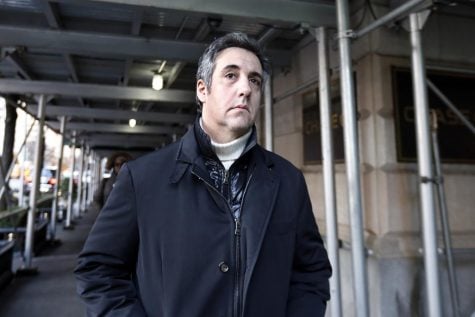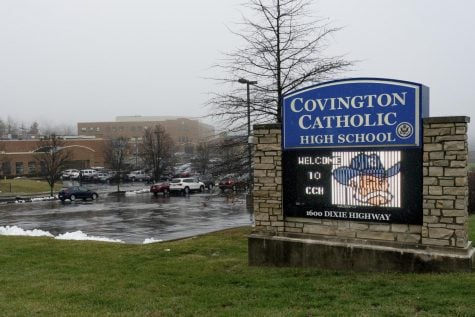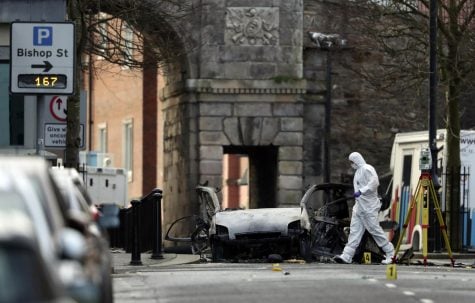Nation and World Briefs
Giuliani: ‘So what’ if Trump and Cohen discussed testimony

President Donald Trump’s lawyer Rudy Giuliani left open Sunday the possibility that Trump and former personal attorney Michael Cohen might have discussed Cohen’s congressional testimony.
But, he added, “so what” if he did?
Giuliani appeared Sunday on CNN, where he said he did not know if Trump had discussed with Cohen a 2017 congressional interview at which Cohen has admitted lying about a Trump Tower real estate project in Moscow. He also acknowledged in a separate interview with NBC News that conversations about that project stretched throughout 2016, including possibly up until October or November of that year.
The question arose in light of a Buzzfeed News report from last week that said Trump had instructed Cohen to lie to Congress and that Cohen relayed that to special counsel Robert Mueller’s team of investigators. Mueller’s office took the unusual step of issuing a statement disputing the story.
Giuliani said on interviews with CNN and NBC News that Trump never directed Cohen to lie. But on CNN he acknowledged the possibility that Trump and Cohen might have discussed Cohen’s testimony, saying that while he had no knowledge of such a conversation, he wasn’t ruling it out.
“I don’t know if it happened or didn’t happen,” Giuliani said, later adding, “And so what if he talked to him about it?”
Giuliani’s suggestion to NBC that dialogue about the Trump Tower project could have stretched into the fall of 2016 extends the timeline beyond what the president has publicly acknowledged. Cohen pleaded guilty to lying to Congress by saying that he had abandoned the project in January 2016 even though prosecutors say he actually continued pursuing it into that June.
Students seen mocking Native Americans could face expulsion

Students at a Kentucky Catholic school who were involved in a video showing them mocking Native Americans outside the Lincoln Memorial after a Washington rally could potentially face expulsion, according to the diocese.
In a joint statement , the Roman Catholic Diocese of Covington and Covington Catholic High School apologized and said they are investigating and will take “appropriate action, up to and including expulsion.”
The Indigenous Peoples March in Washington on Friday coincided with the March for Life, which drew thousands of anti-abortion protesters, including a group from Covington Catholic High School in Park Hills, Kentucky.
Videos circulating online show a youth staring at and standing extremely close to Nathan Phillips, a 64-year-old Native American man singing and playing a drum. Other students, some wearing Covington clothing and many wearing “Make America Great Again” hats and sweat shirts, surrounded them, chanting, laughing and jeering.
“We extend our deepest apologies to Mr. Phillips,” the diocese statement read. “This behavior is opposed to the Church’s teachings on the dignity and respect of the human person.”
According to the “Indian Country Today” website, Phillips is an Omaha elder and Vietnam veteran who holds an annual ceremony honoring Native American veterans at Arlington National Cemetery.
Marcus Frejo, a member of the Pawnee and Seminole tribes who is also known as Chief Quese Imc, said he had been a part of the march and was among a small group of people remaining after the rally when the boisterous students began chanting slogans such as “make America great” and then began doing the haka, a traditional Maori dance. In a phone interview, Frejo told The Associated Press he felt they were mocking the dance.
One 11-minute video of the confrontation shows the Haka dance and students loudly chanting before Phillips and Frejo approached them.
Frejo said he joined Phillips to defuse the situation, singing the anthem from the American Indian Movement with both men beating out the tempo on hand drums.
Although he feared a mob mentality that could turn ugly, Frejo said he was at peace singing despite the scorn. He briefly felt something special happen as they repeatedly sang the tune.
“They went from mocking us and laughing at us to singing with us. I heard it three times,” Frejo said. “That spirit moved through us, that drum, and it slowly started to move through some of those youths.”
Eventually a calm fell over the group of students and they broke up and walked away.
The videos prompted a torrent of outrage online. Actress and activist Alyssa Milano tweeted that the footage “brought me to tears,” while actor Chris Evans tweeted that the students’ actions were “appalling” and “shameful.”
As of Sunday morning, Covington Catholic High School’s Facebook page was not available and its Twitter feed was set to private.
IRA dissidents suspected in Northern Ireland car bomb

Police in Northern Ireland said Sunday they suspect Irish Republican Army dissidents were behind a car bombing outside a courthouse in the city of Londonderry. Two men in their 20s have been arrested over the attack, which caused no injuries.
Attackers hijacked a pizza delivery vehicle, loaded it with explosives and left it outside the city-center courthouse on Saturday evening, the Police Service of Northern Ireland said. The device exploded as police, who had spotted the suspicious vehicle, were evacuating the area.
The force said a warning call was made to a charity in England and passed on to police minutes before the explosion.
Police released surveillance camera footage of the car being parked in front of the courthouse, and of the driver sprinting away. Images also showed a group of young people walking past the car shortly before it blew up.
Assistant Chief Constable Mark Hamilton said the bomb had been a “crude” and unstable device, and called the attack “incredibly reckless.”
“The people responsible for this attack have shown no regard for the community or local businesses,” he said.
Hamilton said the “main line of inquiry” was that the bomb had been planted by a group known as the New IRA.
More than 3,700 people died during decades of violence before Northern Ireland’s 1998 peace accord. Most militants have renounced violence, but small groups of IRA dissidents have carried out occasional bombings and shootings.
Northern Ireland’s power-sharing government has been suspended for two years because of a dispute between the main Protestant and Catholic political parties. Uncertainty about the future of the Irish border after Brexit is adding to tensions.






